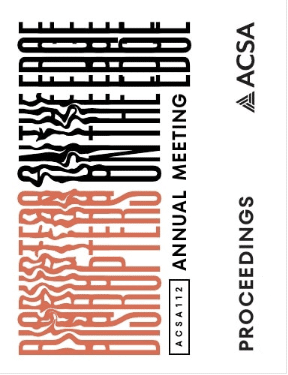Author(s): Karen Seong, Sameena Sitabkhan, Lowai Ghaly, Mazen Ghaly, Andrew Hart, Mohamed Meawad, Kim Ebueng Estacio, Ebueng Estacio, Kendryx Soriano, Edgar Castillo, Peter Peritos & Shadi Vakilian
Micro-intervention can powerfully disrupt the systems that preclude an empowering experience in family shelters. Through co-creation, families can actively participate in the design research process. Valuing lived experiences of unhoused families removes the power imbalance between those with and without design training. Co-creation at the micro-scale prepares architecture students with skills to usher in change in the design practice. Undergraduate students in a collaborative studio fabricated 66 folding beds incorporating the suggestions of the families at an emergency shelter. Extensive prototyping was the primary method of co-creation. Students held themselves accountable to the families and developed a shared purpose to guide the process.
https://doi.org/10.35483/ACSA.AM.112.104
Volume Editors
Germane Barnes & Blair Satterfield
ISBN
978-1-944214-45-6

 Study Architecture
Study Architecture  ProPEL
ProPEL 
